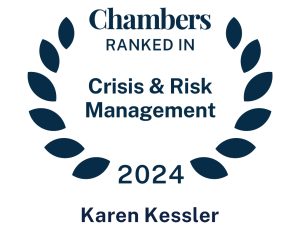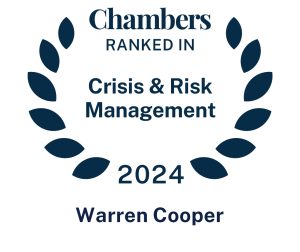“Send out a press release!”
That’s a cry we often hear from clients facing public criticism or media coverage of legal or law enforcement action – or any perceived reputational threat, for that matter.
It’s almost never the path we advise.
But let’s back up. What’s the value of a press release and what makes for a good one?
A good press release convincingly argues that the news is of interest to the publication’s readers. A really good release entices a reporter or editor to want to learn more. A widely distributed press release can be valuable if you’re seeking widespread coverage of your news.
4 Elements of a Good Press Release
Every good press release has 4 key elements.
-
- It should contain actual news
- The news it contains should be appropriate for the outlet’s readers
- It should be brief and to the point
- It should contain at least one appropriate quote from someone involved
A release with all 4 elements has a good chance of getting placed and might even spur the reporter/editor to reach out for a deeper dive.
Common Parts of a Bad Press Release
A bad release is the opposite:
-
- It announces little or nothing newsworthy
- What news it contains is of no interest to the outlet’s readers
- It rambles, starting with several long paragraphs about the client or the client’s business rather than the news itself
- It contains nothing that personalizes the news, i.e., no quotes
Truly bad releases also commit the ultimate faux pas: they don’t include contact information, so the editor can’t follow up even if she wants to.
But the adage, “any publicity is good publicity” isn’t always true. Most of our crisis and reputation clients, for example, want less coverage of their situations, not more.
Nevertheless, clients facing potential public criticism or media coverage that casts them in a bad light often urge us to “get the truth out” by issuing a press release. After all, they argue, how better to tell their story than in a detailed, point-by-point rebuttal of every allegation?
We often advise responding to a media inquiry when we know the reporter plans to write, no matter what (and with as brief a comment as possible). However, sharing a client’s story via a press release is a terrible idea. Holding a press conference — another popular suggestion — is worse.
4 Reasons a Crisis Press Release or Press Conference Can Create Negative Press
-
- The most intense wave of unwanted media attention may pass on its own — unless you offer fuel for a second story, one that updates earlier news or offers “analysis.”
- The news cycle is insatiable. Before an hour is up, an athlete’s or celebrity’s foolish tweet (or anything from Musk or Trump) will push your situation out of the limelight.
- Clickbait news rules, whether it be a corporate misdeed, sexual harassment claim, executive scandal, sports bribery scheme, political reprisal, etc. Media keeps pushing stories that trend. Yours won’t … unless you force it to. (See #1.)
- Finally, even though you think the world is captivated by your situation, few people really care. This is hard for many clients to believe. “Everyone’s talking about me.” Um, no. Only those truly impacted are. Everyone else reads a headline and moves on.
Of course, while we avoid press releases, we still care about what the media writes. If an article makes a claim that is fundamentally inaccurate and important, we will seek a correction. Otherwise, to avoid further coverage, we typically let minor mistakes go. No one remembers them anyway.
Our approach is to engage the media directly … and to avoid the press release entirely.










